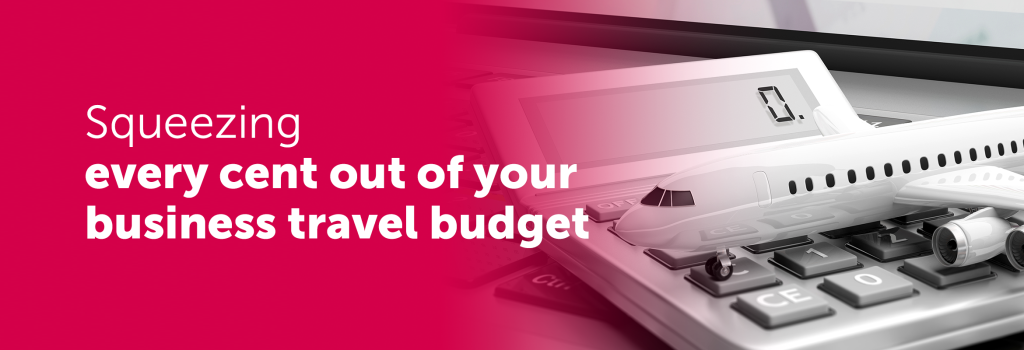
Finance Minister Enoch Godongwana’s maiden budget speech was focussed on promoting economic growth and job creation, which is good news for the country’s start-ups and SMEs. As is the news there’ll be a reduction in corporate income tax, no increase in personal income tax, and, for the first time since 1990, there’ll be no increase in the general fuel levy or the Road Accident Fund (RAF) levy.
It’s being described as a good news budget, both for individuals and South African businesses. But in reality, SMEs are still dealing with the economic impact of Covid lockdowns, never mind high inflation, fuel price increases and a looming 20,5% hike in electricity tariffs. In other words, companies will continue to tighten their belts and save money where they can.
For SMEs on a budget, what does this mean for business travel programmes?
According to Bonnie Smith, GM Corporate Traveller, the SME segment of business travel is actually recovering more quickly than the corporate segment:
“United CEO Scott Kirby said, ‘Business travel is about relationships; it is not about transactions,’” says Desai, “And he’s 100% correct. SMEs are travelling because they can’t afford not to. There is no financial buffer or rainy-day fund. They need to get back to normal. A business’s competitive edge is often reliant on building relationships with suppliers or partners through more face-to-face meetings, negotiating deals, and exploring opportunities – all of which is very difficult over Zoom.”
For Desai, yesterday’s budget speech can only increase business confidence. “Confidence is slowly picking up, and business owners will be buoyed after the 2022 budget speech. But they’ll still be cutting costs and making savings wherever they can – and business travel is no exception.”
“As line items go, business travel can account for a significant chunk of your business’s budget. It’s important to understand where your money goes, so you can identify potential savings – as well as problem areas – and take a more strategic approach to your travel spend.”
According to Desai, SMEs and corporates can squeeze every last cent out of their budget by:
1. Introducing a travel policy to reduce ‘rogue’ spending
In business travel, rogue spending is also called leakage. It occurs when staff book their own flights, accommodation or car hire, often through different websites and platforms, making it incredibly difficult to track spend – or to take advantage of volume discounts.
“Leakage is a strange term,” says Desai, “But it actually describes it perfectly. Money which is lost, often invisibly, because there are no guidelines in place in terms of how, where and when employees can book travel. But it’s an easy fix – with dramatic results.”
2. Leveraging a TMC’s relationships – and buying power
Often SMEs feel that they are too small to warrant the services of a travel management company (TMC), but what they forget is that TMCs have incredible buying power.
“Often TMCs have spent years developing relationships with travel suppliers and can negotiate special rates and perks on your behalf. You’ll be guaranteed the best rates on the day, and can even ask for extra perks like lounge access and early check-in or late check-out.”
Ultimately, says Desai, you’ll be getting more for less.
3. Focussing on account management
When last did you analyse your historical travel spend? Do you know when your organisation is most likely to travel? What do you spend, on average, on hotel accommodation? What are your travellers’ travel habits and preferences? What percentage of travel is booked outside of your travel policy?
These are all important questions, but business owners are often too busy with the day-to-day operations of their business to take a hard look at their travel programme.
Desai says a TMC will be able to look at both your past and present travel spend – and identify real savings into the future. In addition, they’ll manage all flight cancellations, changes, and credits due on your behalf, so you’ll never waste a cent.
4. Formalising a hotel programme
Hotels are a big expenditure in the travel category. According to Desai a TMC can help you get the most out of your accommodation – and save you money in the process.
“This is an important part of the travel policy. We’ll put together a list of specially-curated hotels that match your company’s requirements, taking into account location, budget, facilities and even perks! By formalising a hotel programme on your behalf (and building it into your travel policy), we’ll not only save you money, but bundle in exclusive extras for travellers – think free Wi-Fi and breakfast – and ensure the properties meet your organisation’s health, safety and environmental standards.”
5. Streamlining your reporting and reconciliation processes
Desai says that if you want to get a handle on your spend, you’ll need complete visibility over your data. Make sure that your TMC can provide you with easy-to-use dashboards so you can see exactly where you stand – at any given time – in terms of budgets and spend.
“The latest travel booking tech is focussed on approvals, reporting and reconciliations. Obviously, this makes a travel manager’s life a lot easier, but it also can save you a lot of time and money.”


